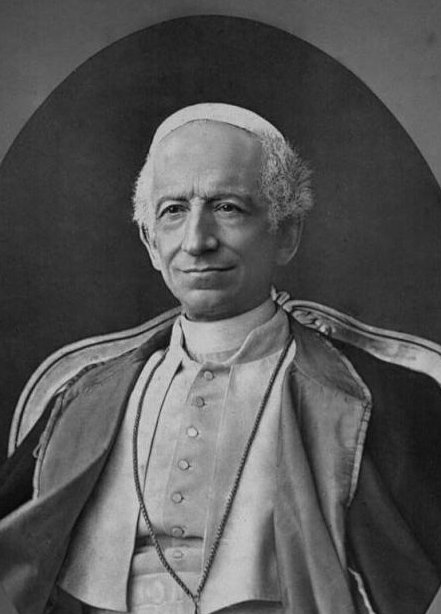
Pope Leo XIII

Pope Leo XII, born in 1810 as Vincenzo Gioacchino, a son of the noble Pecci family of Carpineto Romano, was the first Pope elected after the fall of Rome in 1870, reigning from 1878 until his death in 1903. In one of the longest pontificates in history, he sought to defuse tensions between Catholicism and the secularism dominant in Europe and elsewhere. He wrote the encyclical letter Rerum Novarum (1891), which is a foundational document for the Church’s social teaching.
In celebration of the golden jubilee of Pope Leo’s priestly ordination, an exposition of scientific instruments of Italian clergy was organized in 1888 in the Vatican. Upon conclusion of the exposition, Frs. Denza and Lais suggested to the Pope that the scientific instruments should become part of a re-founded Vatican Observatory.
With Pope Leo’s approval, the astronomical activity of the Holy See, which had come to a halt with the death of Fr. Secchi and with seizure by Italy of the papal observatories at the Campidoglio and the Roman College, was resumed.
The Vatican Observatory was formally re-founded 1891 via the Motu Proprio Ut Mysticam. But astronomical activity had resumed already in 1889, via participation in the preparatory meetings for the international collaborative project to make a photographical map of the entire sky, the project of the Carte du Ciel. Work on this project constituted the greater part of the activity of the Vatican Observatory over the next several decades.
